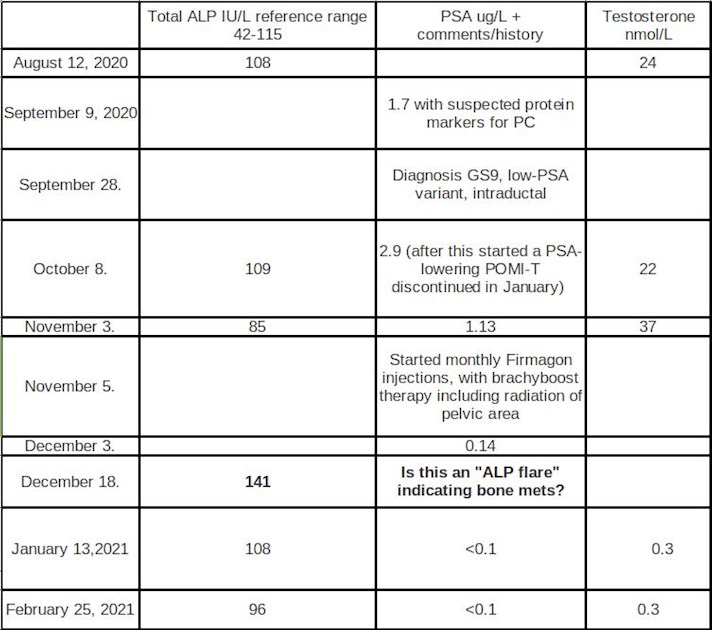Does anybody have an idea whether my 141 total ALP on December 18, six weeks after starting monthly injections of Firmagon, indicates bone mets (an "ALP flare")? All other ALP:s are in the high side of the reference range, between 85 and 109, as can be seen in the table below. If say 40 % of this is from the bones, it would been mean a bone-ALP of around 35 - 40.
A PSMA on November 3 showed spread of prostate cancer to lymph nodes. In addition, there were four suspected PC spots in my bones, with a "50 % risk" of being cancer. I will get this confirmed or not at the end of April with a new PSMA, but obviously I would like to get an idea now if somebody can contribute.
I managed to get a doc to order a bone-specific ALP, but when my blood sample was taken on February 25, the lab doc frustratingly decided not to test it with the remark "Fully normal total S-ALP so isoenzymes are not carried out since it is very improbable to find a clinically significant deviation in the isoenzym pattern". The given reference range was 42 - 115 so I assume that it was indeed total and not bone-specific ALP that was measured, although the "S" in "S-ALP" confused me.
